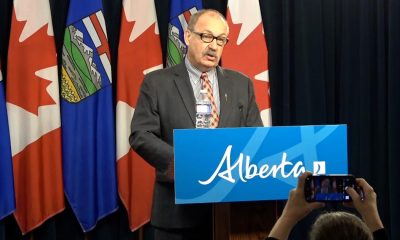TORONTO — Deputy Prime Minister and Finance Minister Chrystia Freeland is hosting an in-person meeting Friday with the provincial and territorial finance ministers in Toronto to discuss issues including the current economic environment and the transition to a clean economy.
The meeting will focus on the economic situation both domestically and globally, according to a federal source with knowledge of the gathering, including discussions on how to provide incentives and supports to be competitive with the U.S.’s Inflation Reduction Act.
U.S. President Joe Biden’s Inflation Reduction Act includes electric-vehicle incentives that favour manufacturers in Canada and Mexico, as well as the U.S.
The incentives, which were already revised to include Canada and Mexico after originally focusing on the U.S., are now facing criticism from Europe about North American protectionism.
The source, who spoke on the condition they not be named to discuss matters not yet made public said the ongoing challenges with health care in Canada will also come up at the meeting. More substantive discussions on that will be held next week when the prime minister meets with premiers on Feb. 7.
In her opening remarks, Freeland said it’s essential for Canada to have its rightful place in the transition to a clean economy, calling it one of the biggest challenges of the moment.
We are in a situation with a lot of economic uncertainty globally, said Freeland, adding that later in the day, the ministers will have a discussion with Bank of Canada governor Tiff Macklem.
“I think that conversation with the governor will be useful and important for all of us,” she said.
Despite the need to address health care challenges, Canadian jobs and the transition to a clean economy, Freeland said the government recognizes it also has to contend with real fiscal constraints.
Freeland will hold a closing news conference at 3:30 p.m. local time.
The meeting comes at a tense time for many Canadian consumers, with inflation still running hot and interest rates much higher than they were a year ago.
The Bank of Canada raised its key interest rate again last week, bringing it to 4.5 per cent, but signalled it’s taking a pause to let the impact of its aggressive hiking cycle sink in.
The economy is showing signs of slowing, but inflation was still high at 6.3 per cent in December, with food prices in particular remaining elevated year over year.
Interest rates have put a damper on the housing market, sending prices and sales downward for months on end even as the cost of renting went up in 2022.
Meanwhile, the labour market has remained strong, with the unemployment rate nearing record lows in December at five per cent.
— With files from Nojoud Al Mallees in Ottawa and James McCarten in Washington
This report by The Canadian Press was first published Feb. 3, 2023.
The Canadian Press
Related
































